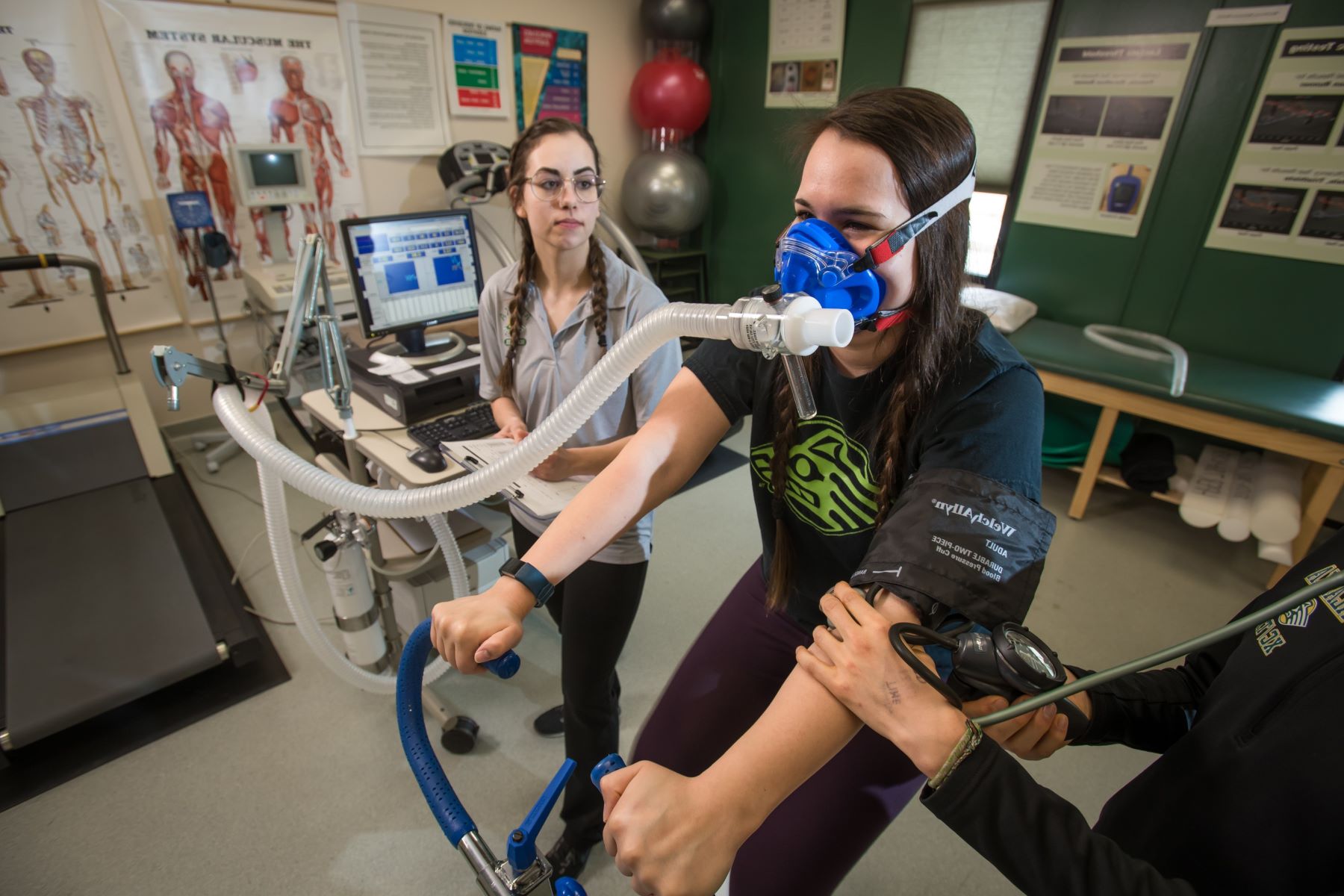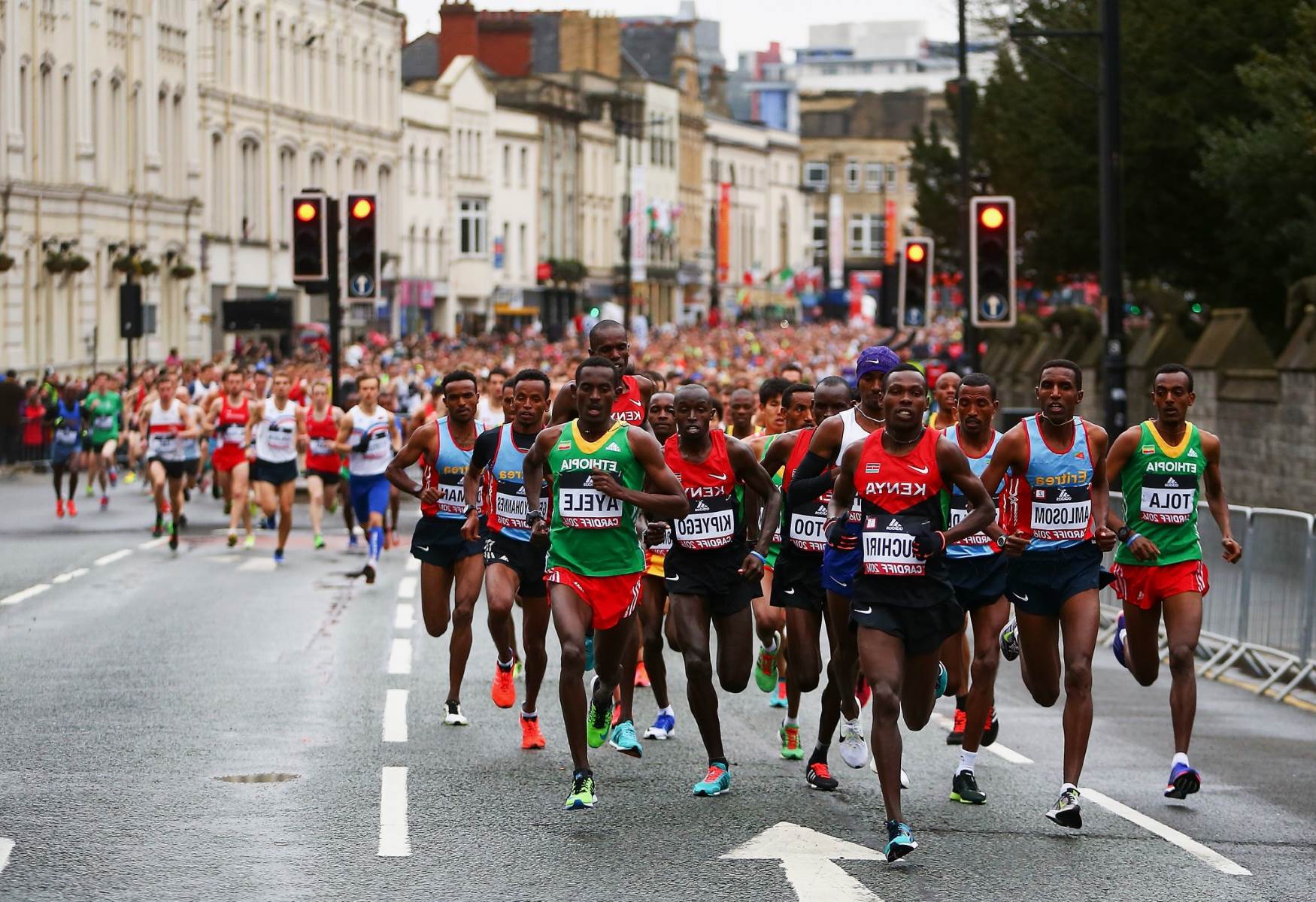Home>Health & Nutrition>Understanding Electrolytes: Enhancing Your Running Performance


Health & Nutrition
Understanding Electrolytes: Enhancing Your Running Performance
Published: February 20, 2024
Enhance your running performance with a deeper understanding of electrolytes. Discover how health and nutrition play a vital role in optimizing your athletic potential. Unlock the secrets to peak physical performance.
(Many of the links in this article redirect to a specific reviewed product. Your purchase of these products through affiliate links helps to generate commission for Therunningadvisor.com, at no extra cost. Learn more)
Table of Contents
The Importance of Electrolytes in Running Performance
Electrolytes play a crucial role in supporting optimal running performance. When you lace up your running shoes and hit the pavement, your body undergoes significant physiological changes to meet the demands of this physical activity. As you run, your body temperature rises, and you begin to sweat. This process is your body's way of cooling down, but it also leads to the loss of essential electrolytes.
Electrolytes, such as sodium, potassium, calcium, and magnesium, are minerals that carry an electric charge and are vital for various bodily functions. During running, these electrolytes are lost through sweat, and their imbalance can have a profound impact on your performance and overall well-being.
Sodium, for instance, helps regulate fluid balance and supports nerve function and muscle contractions. Potassium is essential for maintaining proper muscle function and nerve signaling. Calcium plays a crucial role in muscle contractions, while magnesium is involved in energy production and muscle function.
When these electrolytes are depleted through sweating, runners may experience muscle cramps, fatigue, and decreased performance. Maintaining the balance of electrolytes is essential for sustaining energy levels, preventing muscle cramps, and supporting overall performance during running.
In addition to their role in muscle function, electrolytes also contribute to maintaining proper hydration levels. Proper hydration is essential for regulating body temperature and ensuring that your cardiovascular system can efficiently deliver oxygen to working muscles.
In essence, understanding the importance of electrolytes in running performance is not just about preventing dehydration; it's about ensuring that your muscles and nerves can function optimally, allowing you to perform at your best.
As a runner, being mindful of your electrolyte balance is crucial for sustaining energy levels, preventing muscle cramps, and optimizing overall performance. In the next sections, we will delve into the common electrolytes and their functions, signs of electrolyte imbalance in runners, strategies for maintaining electrolyte balance during running, and electrolyte replacement options for runners.
Common Electrolytes and Their Functions
Sodium
Sodium is a key electrolyte that plays a crucial role in maintaining fluid balance within the body. During running, as you sweat, sodium is lost, which can disrupt this delicate balance. This essential mineral supports nerve function, muscle contractions, and overall cellular function. In the context of running, sodium is particularly important for preventing muscle cramps and supporting optimal performance.
Potassium
Potassium is another vital electrolyte that is essential for runners. It aids in maintaining proper muscle function and supports nerve signaling. This electrolyte is crucial for regulating heart rhythm, muscle contractions, and overall muscle function. When potassium levels become depleted through sweating, runners may experience muscle weakness, fatigue, and diminished performance.
Calcium
Calcium is well-known for its role in maintaining strong bones, but its significance extends to muscle function as well. During running, calcium is involved in muscle contractions, making it indispensable for runners aiming to maintain peak performance. Ensuring adequate calcium levels can help prevent muscle cramps and support overall muscle function during running.
Magnesium
Magnesium is a lesser-known yet equally important electrolyte for runners. It is involved in over 300 enzymatic reactions in the body, including energy production and muscle function. During running, magnesium plays a critical role in supporting energy metabolism and muscle contractions. Depletion of magnesium can lead to muscle cramps, fatigue, and compromised performance.
Understanding the functions of these common electrolytes is essential for runners aiming to optimize their performance. By being mindful of the roles that sodium, potassium, calcium, and magnesium play in supporting muscle function, nerve signaling, and energy metabolism, runners can take proactive steps to maintain electrolyte balance and sustain peak performance during their runs.
Signs of Electrolyte Imbalance in Runners
Recognizing the signs of electrolyte imbalance is crucial for runners to maintain peak performance and overall well-being. When electrolyte levels become disrupted, whether due to excessive sweating, inadequate intake, or other factors, it can lead to a range of symptoms that can significantly impact running performance. Here are the key signs of electrolyte imbalance that runners should be aware of:
-
Muscle Cramps: One of the most common indicators of electrolyte imbalance during running is muscle cramping. When essential electrolytes such as sodium, potassium, calcium, and magnesium are depleted, muscles may become more prone to involuntary contractions, leading to cramping. These cramps can be painful and disruptive, hindering a runner's ability to maintain their pace and stride.
-
Fatigue and Weakness: Electrolyte imbalance can contribute to feelings of fatigue and weakness during running. When the body's electrolyte levels are not adequately maintained, muscle function and energy metabolism may be compromised, leading to a sense of overall fatigue and reduced muscular strength. Runners may find it challenging to sustain their performance levels and may experience a notable decline in endurance.
-
Nausea and Vomiting: In cases of severe electrolyte imbalance, runners may experience symptoms such as nausea and vomiting. These symptoms can be indicative of significant disruptions in the body's electrolyte levels, particularly sodium and potassium. Nausea and vomiting can not only hinder running performance but also pose potential risks to overall health and well-being.
-
Irregular Heartbeat: Electrolyte imbalance, particularly involving potassium and calcium, can impact the heart's electrical activity, leading to irregular heartbeats or palpitations. Runners may notice a sensation of fluttering or rapid heart rate, which can be concerning and may warrant immediate attention to address the underlying electrolyte imbalance.
-
Confusion and Disorientation: In cases of severe electrolyte imbalance, runners may experience cognitive symptoms such as confusion, disorientation, or mental fogginess. Electrolytes play a critical role in nerve signaling and brain function, and their imbalance can manifest as cognitive disturbances that can impair a runner's focus and mental clarity during their run.
Recognizing these signs of electrolyte imbalance is essential for runners to take proactive measures to maintain optimal electrolyte balance. By being attentive to these indicators, runners can adjust their hydration and nutrition strategies to support their electrolyte needs, ultimately enhancing their running performance and overall well-being.
Strategies for Maintaining Electrolyte Balance During Running
Maintaining optimal electrolyte balance is essential for runners to sustain peak performance and overall well-being. Implementing effective strategies to support electrolyte levels during running can significantly enhance endurance, minimize the risk of muscle cramps, and promote overall running efficiency. Here are key strategies for maintaining electrolyte balance during running:
1. Hydration Planning
Developing a comprehensive hydration plan is fundamental for managing electrolyte balance during running. Prior to a run, ensure adequate hydration by consuming fluids containing electrolytes such as sodium and potassium. During longer runs, incorporating electrolyte-enhanced sports drinks or electrolyte tablets into your hydration strategy can help replenish lost minerals and support optimal electrolyte balance.
2. Balanced Nutrition
Integrating a well-rounded nutrition plan that includes foods rich in essential electrolytes is crucial for sustaining electrolyte balance during running. Incorporate potassium-rich foods such as bananas, oranges, and leafy greens into your pre-run meals to support muscle function and minimize the risk of potassium depletion. Additionally, including calcium and magnesium sources such as dairy products, nuts, and seeds can contribute to overall electrolyte support.
3. Electrolyte Supplementation
Incorporating electrolyte supplementation into your running regimen can be beneficial, particularly during prolonged or intense runs. Electrolyte tablets or powders can be easily carried and consumed during runs to replenish sodium, potassium, and other essential minerals lost through sweat. This proactive approach can help prevent electrolyte depletion and support sustained performance.
4. Monitoring Sweat Rate
Understanding your individual sweat rate and electrolyte loss during running is essential for tailoring your electrolyte maintenance strategies. By gauging your sweat rate through pre- and post-run weight measurements, you can gain insights into the extent of electrolyte loss and adjust your hydration and electrolyte replenishment accordingly to maintain optimal balance.
5. Environmental Considerations
Environmental factors such as temperature and humidity can influence sweat rate and electrolyte loss during running. In hot and humid conditions, the body's electrolyte loss through sweat can be heightened, necessitating a more vigilant approach to electrolyte maintenance. Adjusting your hydration and electrolyte replenishment based on environmental conditions is crucial for sustaining electrolyte balance.
By incorporating these strategies into your running routine, you can proactively support electrolyte balance, minimize the risk of imbalance-related symptoms, and optimize your running performance. Understanding the importance of electrolyte maintenance and implementing targeted strategies can empower runners to achieve their performance goals while safeguarding their overall well-being.
Electrolyte Replacement Options for Runners
When it comes to replenishing electrolytes during running, there are several effective options that can help sustain optimal performance and support overall well-being. As runners strive to maintain electrolyte balance, considering the following replacement options can play a pivotal role in addressing the mineral loss incurred through sweating and promoting sustained running efficiency.
1. Electrolyte-Enhanced Sports Drinks
Electrolyte-enhanced sports drinks are a popular and convenient option for replenishing essential minerals during running. These beverages are formulated to contain specific electrolytes such as sodium, potassium, and magnesium, making them an effective choice for sustaining electrolyte balance. By consuming electrolyte-enhanced sports drinks during runs, runners can replenish lost minerals, support hydration, and mitigate the risk of muscle cramps and fatigue.
2. Electrolyte Gels and Chews
For runners seeking portable and easily digestible electrolyte replenishment, electrolyte gels and chews offer a practical solution. These products are designed to provide a concentrated source of electrolytes in a convenient, easy-to-consume format. Electrolyte gels and chews are particularly beneficial during longer runs or races, allowing runners to quickly replenish essential minerals without disrupting their pace.
3. Electrolyte Tablets and Powders
Electrolyte tablets and powders are versatile options that enable runners to customize their electrolyte replenishment based on individual needs. These products can be dissolved in water, creating a tailored electrolyte solution that aligns with specific mineral requirements. Electrolyte tablets and powders are ideal for runners who prefer a customizable approach to electrolyte replacement, allowing for precise control over mineral intake during running.
4. Natural Food Sources
Incorporating natural food sources rich in essential electrolytes into pre- and post-run nutrition can contribute to sustained mineral balance. Foods such as bananas, oranges, nuts, seeds, and leafy greens provide valuable sources of potassium, magnesium, and calcium. By integrating these nutrient-dense foods into their dietary intake, runners can support electrolyte replenishment while benefiting from additional vitamins, minerals, and antioxidants essential for overall health and performance.
5. DIY Electrolyte Drinks
For runners who prefer a homemade approach to electrolyte replacement, creating DIY electrolyte drinks using simple ingredients such as water, citrus juices, honey, and a pinch of salt can offer a cost-effective and customizable solution. By adjusting the ingredient proportions based on individual electrolyte needs, runners can craft personalized electrolyte drinks that align with their specific mineral requirements, providing a tailored approach to electrolyte replenishment.
By exploring and incorporating these electrolyte replacement options into their running regimen, runners can proactively address mineral loss, sustain optimal electrolyte balance, and enhance their overall running performance. Understanding the diverse range of replenishment options available empowers runners to make informed choices that align with their individual preferences and electrolyte needs, ultimately supporting their pursuit of peak performance and well-being.












